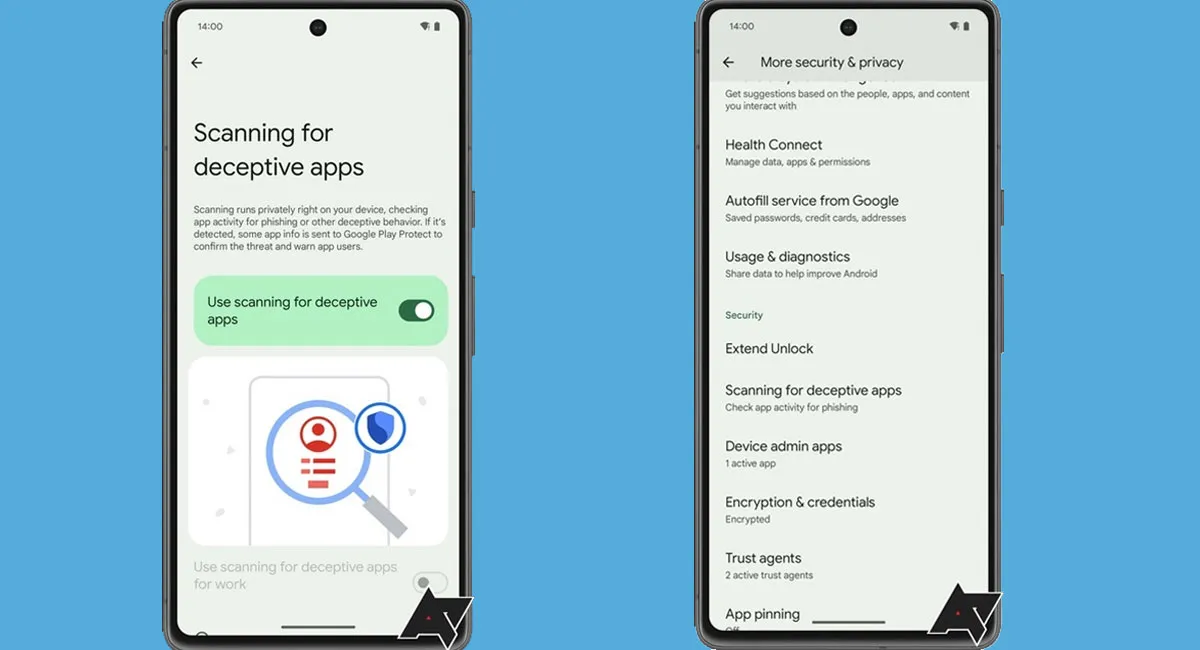Enhanced Security Measures: Google’s Alleged Pursuit to Detect Phishing Apps on Android Devices
Google’s ongoing commitment to fortifying Android’s security and privacy features includes a reported initiative aimed at bolstering protection against phishing apps. The tech giant is said to be in the development phase of a novel feature that will be integrated into a forthcoming Android OS update, geared specifically towards identifying deceptive apps that engage in phishing activities. This impending feature is anticipated to conduct a comprehensive examination of app behaviors, specifically targeting deceptive actions indicative of phishing attempts. Notably, the purported phishing app detection service is slated to operate locally on Android devices, while certain detection-related insights may be utilized to forewarn other users about similar threats.
According to insights shared by Android Police, indications of a new “scanning for deceptive apps” feature have surfaced within the second Android 14 QPR2 beta version, recently released to testers. The feature appears to be nestled within the Security & privacy section of the Settings app, housed within the More security & privacy sub-menu.

The report suggests that Google will introduce a system service designated to scrutinize apps that prompt users to input their password. While it’s acknowledged that several legitimate apps may necessitate password inputs as part of their functionality, the proposed system aims to identify potential phishing scams that manipulate users into entering sensitive information on deceptive websites or applications. However, the scope of this system’s scanning, whether encompassing all apps or solely unknown ones, remains unclear at the present juncture.
In the recent findings within the second Android 14 QPR2 beta version, a potential new addition called the ‘Private Space’ feature has emerged, hinting at the ability to conceal apps from other users. This anticipated feature is poised not only to offer a secure enclave for users to hide and safeguard their apps and files but also to potentially allow the concealment of the usage of the locking functionality itself. This might involve users typing “private space” into the search bar on the app drawer, potentially obscuring the fact that apps or files are being kept hidden and locked.
While Samsung has long provided a similar functionality through its Secure Folder feature, dating back to 2017, the integration of the ‘Private Space’ feature into the Android platform could democratize this capability across all Android Original Equipment Manufacturers (OEMs). Google’s forthcoming feature holds the promise of extending this functionality to billions of Android devices, offering a standardized and widespread method for users to secure their sensitive apps and files, enhancing privacy and security across the Android ecosystem.















